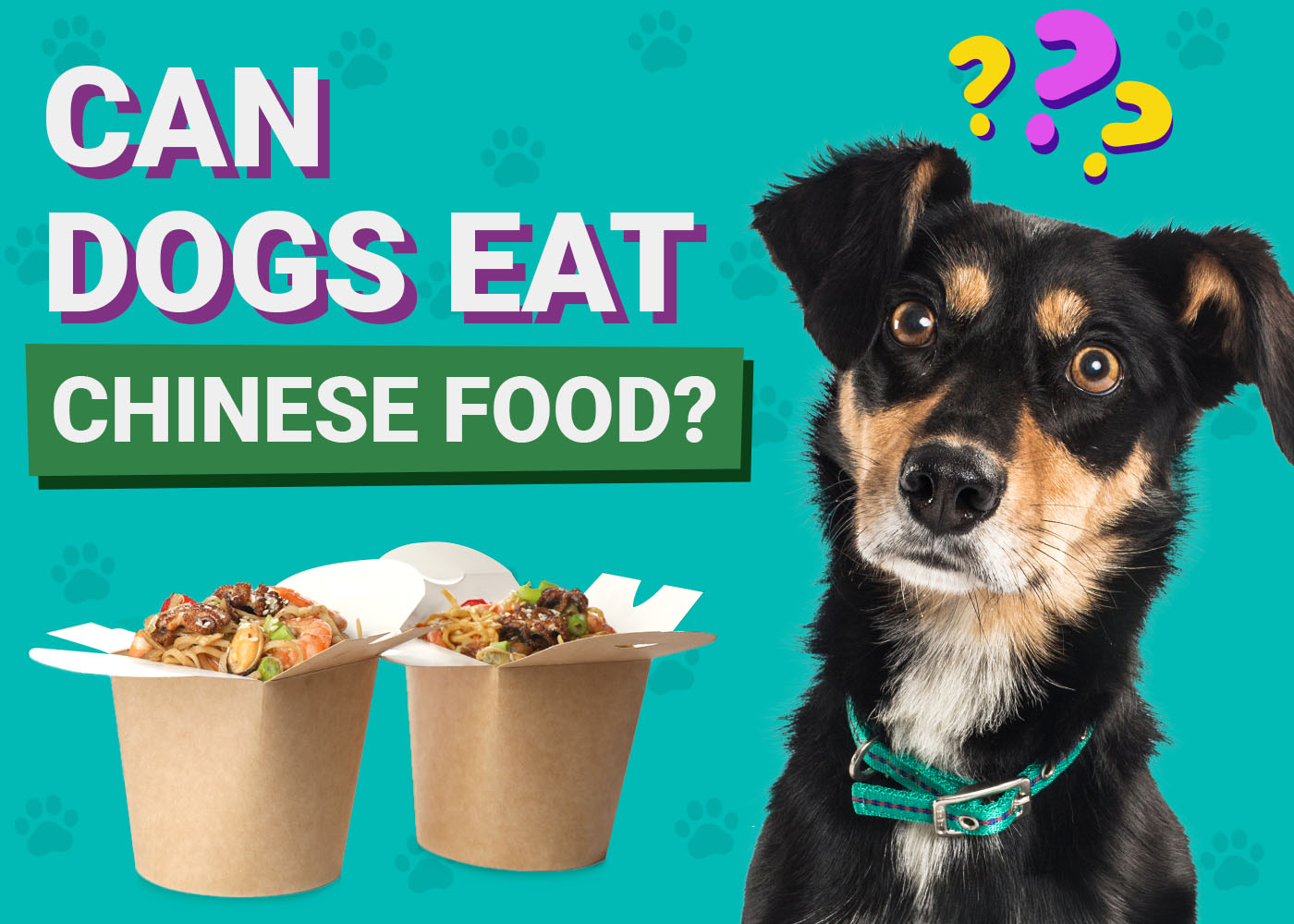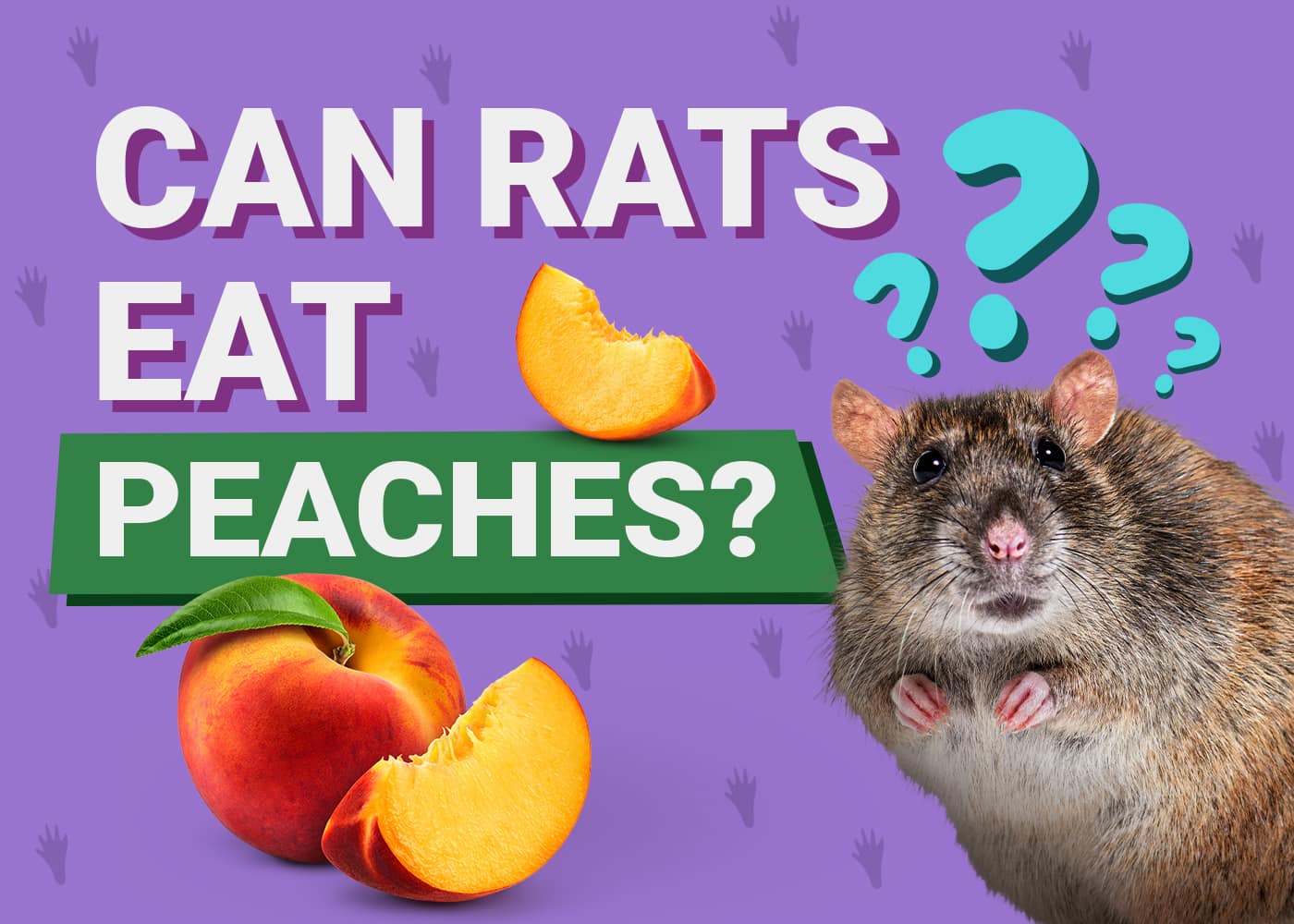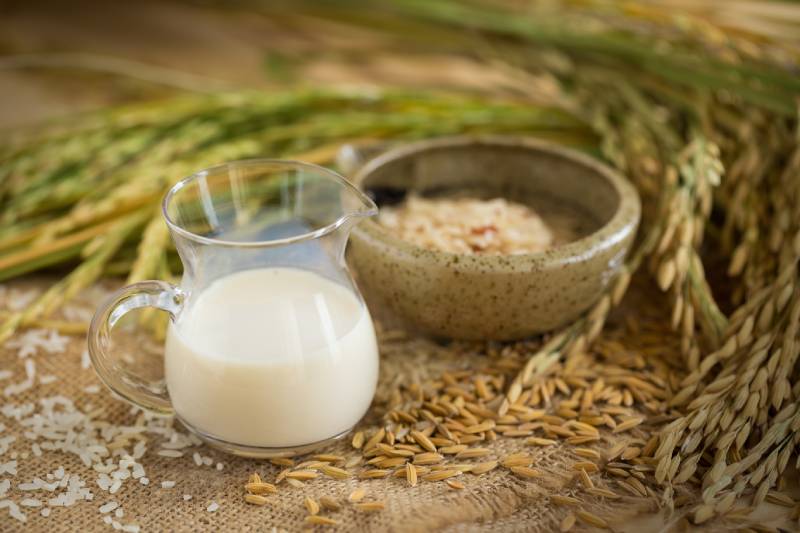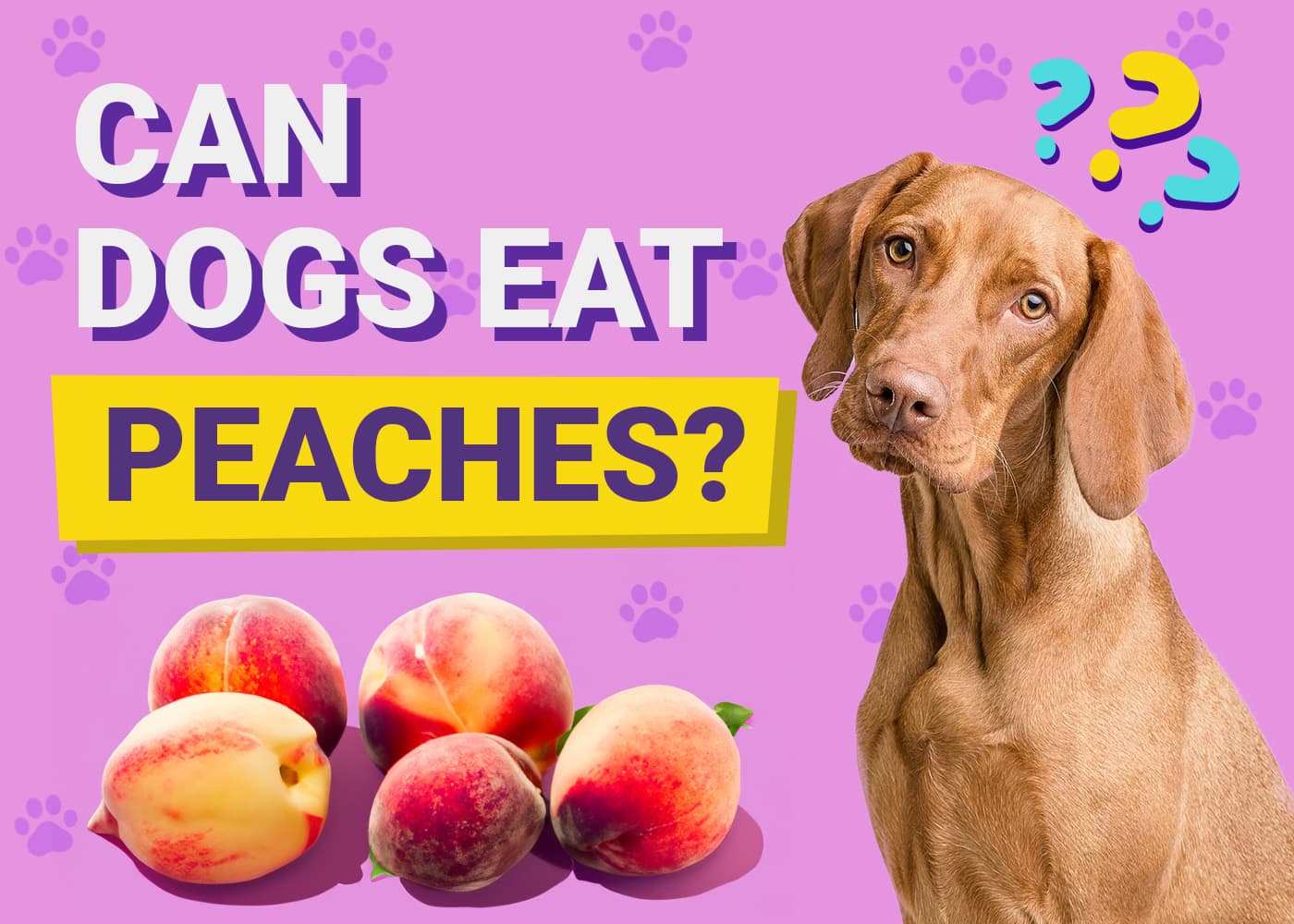VET APPROVED

The information is current and up-to-date in accordance with the latest veterinarian research.
Learn more »Click to Skip Ahead
Chinese food is a very popular meal for many Americans. It is cheap, fast, and delicious. While you are chowing down on your Chinese food, you might be wondering if you should share some with your pup. Chinese food seems harmless at first glance and is made up of simple ingredients, but is it safe? Chinese food is a very broad category that contains many diverse dishes. Some of these are safe, and some aren’t.
Here is everything you need to know about feeding your dog Chinese food, including safe and dangerous ingredients, tips for sharing, and what to do if you have concerns.

Can Dogs Eat Chinese Food?
In some cases, yes, but not always. Dogs can eat Chinese food in small amounts, but not all dishes are completely safe. Dogs should not eat Chinese food regularly as part of their diet. If they steal your dinner they might suffer from an upset stomach. There are still some Chinese food dishes that are unsafe for dogs, and those particular ones should be avoided. In many cases, Chinese food is safe due to its basic ingredients as long as you use moderation. But, like most things for dogs, the devil is in the details and we do not recommend feeding chinese take-out to your dog.
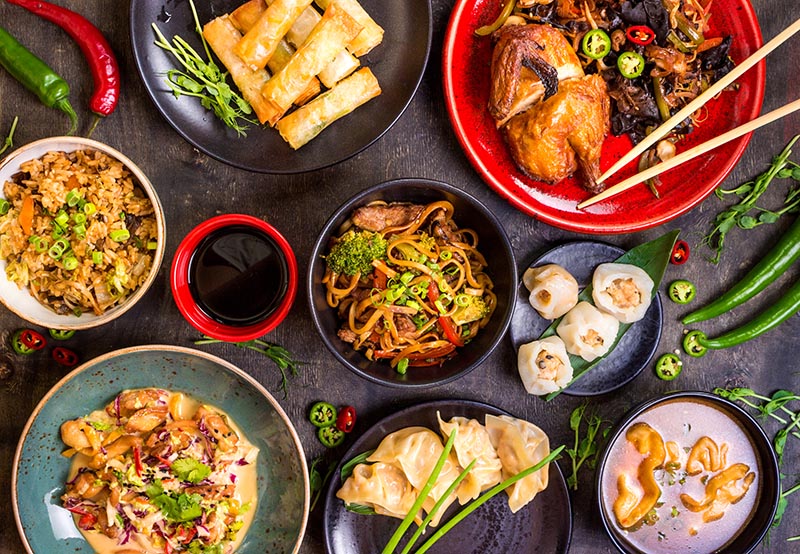
Chinese Food to Avoid
Some Chinese food dishes are filled with savory additives that make them delicious for people but might not be good for dogs. Chinese food with ample amounts of sauce, like General Tso’s chicken, should be avoided. Chinese foods with a lot of sodium, like lo mein, should also be avoided. You should not give your dogs anything with soy sauce on it because of the high sodium content. You should also avoid any Chinese dishes that contain garlic or onions, as those things can be toxic for dogs.
Another thing that you should avoid is giving your dogs access to the thick dipping sauces that sometimes come with Chinese food. Do not let your dog lick out a full sauce cup. You should also avoid giving your dogs sodium-rich broths as well.
You should also avoid any spicy Chinese foods. Some people really like hot food or spicy food, but these things are not great for dogs. Some Chinese dishes are flavored with chili powder or hot cayenne pepper.
Some Chinese food is loaded with Monosodium Glutamate or MSG which is another form of sodium that should be avoided in dogs. While MSG will not be fatal for dogs, it is not healthy to give them too much in one sitting.
- Onions
- Garlic
- High sodium content
- Soy sauce
- Rich sauces
- Spicy foods

Chinese Food That Is Often Safe
At first glance, Chinese food looks like it should be very safe for dogs. Many typical Chinese food dishes contain meat, vegetables, rice, and/or noodles. On their own, each one of these basic ingredients is safe for dogs. Chinese foods that primarily contain vegetables, meat, and rice should be fine for dogs, and if they are not cooked in too much extra stuff, it could even be healthy. For example, a dinner of plain white rice and steamed broccoli is very safe and soothing for a dog’s stomach.
Safe Chinese food dishes are the ones that include basic, unseasoned ingredients like fried rice, broccoli, peas, pork, and beef. The danger with Chinese food is not usually in the ingredients themselves but rather in the additives that go along with it.
That means that most Chinese foods cooked at home should be safe. In fact, you can cook Chinese dishes without the sodium and sauces at home, which makes it very safe for dogs. Many of the potentially unsafe additives come from local Chinese takeout and pre-prepared meals. Chinese takeout should be avoided in most cases because of the additives.
- Broccoli
- Rice
- Basic noodles
- Pork
- Beef
- Chicken
Remember that not all Chinese food is safe for dogs. While the base ingredients are safe, the additives, oils, and sauces might not be.
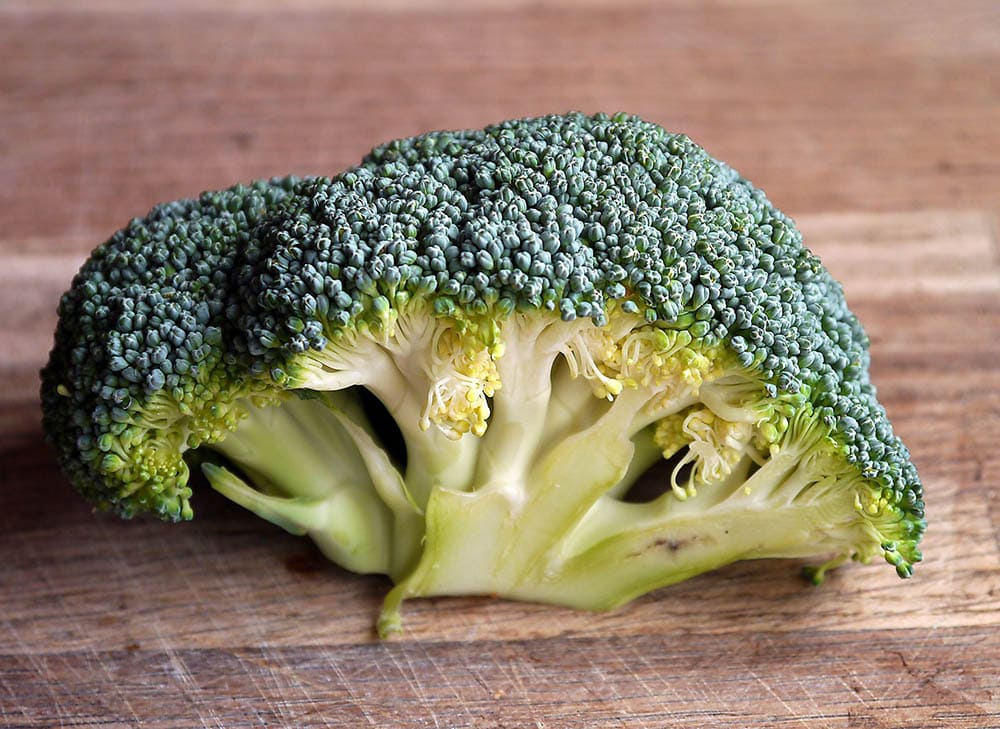
Use Moderation
Any time you feed your dog human food, you should use a degree of moderation. Human food is made for humans, not dogs, so it is not always safe to indiscriminately give it to them. Giving your dogs some leftover Chinese food on occasion should not be harmful. But you should not give them full portions. If you eat Chinese food on a regular basis (multiple times per week), you should not give your dogs leftovers every time you eat it.
If you avoid giving your dog too much Chinese food on any given basis and avoid dangerous foods like garlic, onions, and sauces, you should not have any issues.
Watch for GI Issues
If you are worried about your dog after they have eaten Chinese food, keep an eye on them for any gastrointestinal issues. If your dog’s stomach is upset, it will most commonly present as diarrhea, but they might also suffer from vomiting, hypersalivation, lethargy, and loss of appetite. If you see any of these signs in your dog, you might want to consider taking them to your regular vet for a checkup. If you are curious about your particular Chinese food habit or your dog’s previous leftover escapades, you can consult your veterinarian to get their opinion about your particular pet.

Conclusion
Chinese food’s basic ingredients are not that different from many foods that Americans eat. It can be shared with your dog in small amounts as long as it does not contain any dangerous ingredients for dogs. That means certain dishes will be considered safe for dogs, and others should be avoided completely. Use discretion and moderation when sharing your favorite Chinese food with your dog, and if you have any concerns consult your veterinarian.
Featured Image Credit: Luca Santilli, Shutterstock
